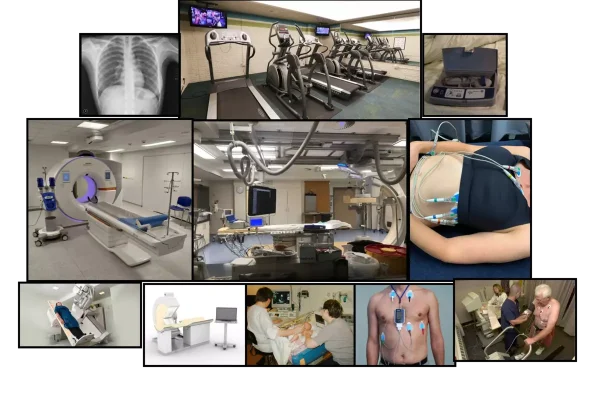
Cardiology: Physician Practice Management Fees
Cardiology is one of the most expensive specialty practices to operate. Cardiology’s long list of in-office ancillary services can require millions of dollars of capital investment. This is one reason that private equity firms have invested in cardiology practice management companies. The two largest cardiology management company platforms are Cardiovascular Associates of America (“CVUSA”) and US Heart & Vascular.
Cardiology physician practices cannot be owned directly by non-physicians in states that ban the Corporate Practice of Medicine like California, New York, and Texas. Physician practice management arrangements are used by private equity firms, platform physician practice companies, publicly-traded practice operators, and other for-profit businesses to manage the non-medical staff, facilities, equipment, supplies, and business services of cardiology practices.
Under turnkey management arrangements, for-profit management companies charge independent medical Professional Corporations (PCs) management fees to provide facilities, equipment, supplies, business services, and non-medical staff. According to surveys, fixed percentage rates of medical practice revenues are the most common form of physician practice management fees.
A growing number of states have enacted mandatory state-level reviews of material transactions involving healthcare organizations and management service organizations (MSOs). California, New York, Illinois, Washington, Oregon, and Minnesota have all enacted requirements for state agencies to review material transactions in healthcare. Future business transactions involving cardiology practices in these states and other states may trigger reviews.
If a state review is required, you want to make sure all your management arrangements are in compliance with applicable state and federal laws. A Fair Market Value opinion of your cardiology management arrangement can provide supporting evidence that your management arrangement is legitimate.
Native Video Player

Cardiology Physician Practice Management Fees
YouTube Video Player
The top 11 ancillary services that make cardiology practices expensive to operate are identified below. Cardiologists who want to provide all these ancillary services directly to their patients may do so with the help of management companies. Management companies can provide facilities, equipment, supplies, and staff to cardiology practices as part of their management service fees. This can relieve individual cardiologists from the financial pressure of personally guaranteeing millions of dollars of loans.
Top 11 Cardiology Ancillary Services
Variation in Cardiology Practice Management Fees
Cardiology practice management fees can vary substantially from practice to practice for several reasons.
- Sub-specialty mix: Management fees need to be calibrated for your sub-specialty mix. Practice expenses (and management fees) are NOT the same for medical cardiologists, interventional cardiologists, clinical cardiac electrophysiologists, and cardiothoracic surgeons.
- In-office ancillaries: Each cardiology specialist uses specialized equipment, instruments, and lab services in their offices, as well as third party facilities. Though these are Stark-Designated Health Services (DHS), these services can be provided under the in-office ancillary exception to the Stark Laws. A management company may provide ALL the specialized facilities, equipment, supplies, and support staff necessary to furnish these services in-office. The top 11 ancillary services identified above may have material impacts on management fees if their non-medical components are provided to a practice by a third-party management company.
- Regional geographic costs: Labor, real estate, supplies, and other expenses vary widely from market to market. Practice expenses and Fair Market Value cardiology practice management fees are very different in rural Nebraska and downtown San Francisco.
Fair Market Value
Cardiology Physician Practice Management Fee Ranges
The American Medical Association, Medicare, and the medical specialty societies spend appreciable time each year administering practice expense surveys and compiling data on the practice expenses for every physician service provided under all physician specialties.
Health-Contract.com compiles and aggregates practice data for the services provided by each type of cardiology specialist. Click the images below to see the ratios of non-medical practice expenses that may be furnished by third-party management companies to each type of cardiology specialty practice.
Cardiology services can expect favorable growth trends from the aging baby boomer demographics for the next several decades. Cardiologists will have no problem finding national cardiology networks and management companies willing to provide capital and back-office business support for their practices.
Inflation, rising interest rates, and the high capital requirements of in-office ancillary services may drive more cardiologists to partner with practice management companies. These barriers to entry will affect new cardiologists, as well as existing cardiologists needing to replace existing facilities and equipment that has reached the end of its useful life.
The government is highly cognizant of private equity’s involvement in practice management companies. New state-level reviews of material transactions involving healthcare management companies will likely scrutinize physician practice management arrangements for compliance with state and federal laws, including bans on the Corporate Practice of Medicine, fee-splitting prohibitions, and the federal Anti-Kickback Statute and Stark Laws.
We have the data!
The DataRise™ Physician Practice Management Fees data subscription is the most robust and authoritative data for comprehensive turnkey physician practice management arrangements.
Purchase the data subscription today, or contact Health-Contract.com directly for a formal Fair Market Value opinion.

















